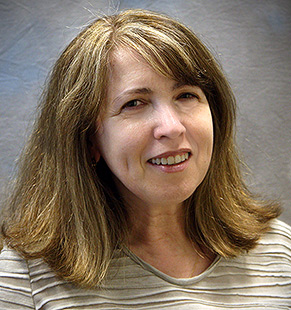Dr. Sanda Harabagiu
- Associate Professor of Computer Science
- Research Initiation Chair

This non-endowed faculty position is supported by the Erik Jonsson School of Engineering and Computer Science.
“I love teaching and the interaction that I have with young people. I enjoy watching them develop and blossom into experts.”
Dr. Sanda Harabagiu, associate professor of computer science in the Erik Jonsson School of Engineering and Computer Science, researches how human communication works in a textual form across different genres and domains, with a special interest in the medical domain.
She studies computational aspects of written communication – a field that touches on aspects of linguistics, psychology, cognitive sciences and artificial intelligence. She then connects that information with other areas, such as biomedical science.
Natural language processing is the oldest area of artificial intelligence, since the ability to comprehend texts and to automatically produce dialogs is a manifestation of complex intelligence. With the advent of electronic medical records, natural language processing has become a key technique for uncovering information from the narratives produced by medical doctors.
“We want to capture how human communication works in textual form – how people manage to convey ideas and how other people understand those ideas,” she said. “That makes my work inherently interdisciplinary.”
Harabagiu holds doctorates from both the University of Southern California and the University of Rome. Her primary interest is in clinical informatics, a rapidly growing field that develops algorithms for processing the ever-growing quantity of electronic medical records.
In recent research at UT Southwestern Medical Center, Harabagiu performed some work on extracting actionable findings from radiology reports, which achieved a precision of 91 percent. This improved human accuracy by 25 percent.
The ability to automatically identify actionable findings in radiology reports, such as appendicitis, can play an important role in clinical quality improvement research.
The recipient of a National Science Foundation Career Award, Harabagiu joined UT Dallas in 2002. She is also director of the Human Language Technology Research Institute, established in 2002. The Institute is home to several cross-disciplinary collaborations in the area of human language technology.